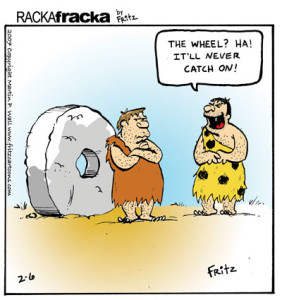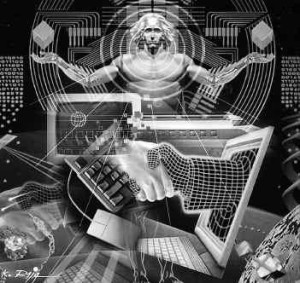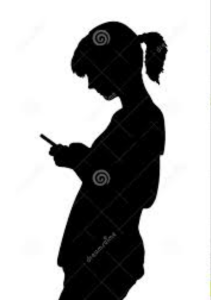For those out there yet to hop on the Burnout Bandwagon, just a quick “alert” to let you know there’s almost no room left. Everyone’s knee deep in it, whether it’s socially or at work. Burnout is the new orange.
 Volumes are being written about digital age overload and how it’s only getting more intense. Like hitting pop-ups on every single webpage you visit. You can longer read a column or check a score without being pitched, solicited or hit up for a “follow” or a “like”. Some sites launch full on videos you can’t skip. One recently demanded a urine sample and a DNA strand. It’s officially out of control.
Volumes are being written about digital age overload and how it’s only getting more intense. Like hitting pop-ups on every single webpage you visit. You can longer read a column or check a score without being pitched, solicited or hit up for a “follow” or a “like”. Some sites launch full on videos you can’t skip. One recently demanded a urine sample and a DNA strand. It’s officially out of control.
 Present Shock is a book that came out last year. You know, the kind printed on paper with ink. It weighs less than half a pound and it never crashes. You’ll need an outside light source to read it at night, which I’ve been doing with a building sense of anxiety. The author, Douglas Rushkoff, does a bang up job of breaking down some of the crazy shit that’s unfolding thanks to our ever-escalating tech revolution. You may think you know about the problems inherent in the digital age, but you probably haven’t thought about them as deeply as you should have.
Present Shock is a book that came out last year. You know, the kind printed on paper with ink. It weighs less than half a pound and it never crashes. You’ll need an outside light source to read it at night, which I’ve been doing with a building sense of anxiety. The author, Douglas Rushkoff, does a bang up job of breaking down some of the crazy shit that’s unfolding thanks to our ever-escalating tech revolution. You may think you know about the problems inherent in the digital age, but you probably haven’t thought about them as deeply as you should have.
 Rushkoff couples incisive critique with some scary analysis on the psychological effects of trying to keep on top of something as vast as the internet. There have been similar zeitgeist shifts throughout history. So how is this one different? You can bet there was a vocal minority of ancient Mesopotamians bitching about how the wheel was going change everything for the worse. And once Industrial Age machines started running 24/7, grinding through employees, sometimes literally, that minority quickly evolved into a majority.
Rushkoff couples incisive critique with some scary analysis on the psychological effects of trying to keep on top of something as vast as the internet. There have been similar zeitgeist shifts throughout history. So how is this one different? You can bet there was a vocal minority of ancient Mesopotamians bitching about how the wheel was going change everything for the worse. And once Industrial Age machines started running 24/7, grinding through employees, sometimes literally, that minority quickly evolved into a majority.
 You can read Schopenahauer essays from the mid-1800’s and hear his concern that people are becoming more and more dehumanized, more and more distracted. Virtually no one has enough time anymore. The gripe is far from novel. But it’s starting to become clear that the phenomenon of digital omnipresence is having a more pernicious effect than we’ve seen in past ages. We’re obsessed with the present tense like never before.
You can read Schopenahauer essays from the mid-1800’s and hear his concern that people are becoming more and more dehumanized, more and more distracted. Virtually no one has enough time anymore. The gripe is far from novel. But it’s starting to become clear that the phenomenon of digital omnipresence is having a more pernicious effect than we’ve seen in past ages. We’re obsessed with the present tense like never before.
 Rushkoff breaks it down into five chapters you’ll rip through if your feeling even one of them. But he also manages to provide a few actionable suggestions rather than just doom saying about how everything not happening RIGHT NOW should be pushed aside in favor of the onslaught of everything that supposedly is.
Rushkoff breaks it down into five chapters you’ll rip through if your feeling even one of them. But he also manages to provide a few actionable suggestions rather than just doom saying about how everything not happening RIGHT NOW should be pushed aside in favor of the onslaught of everything that supposedly is.
He kicks it off by describing the death of the narrative. If you watch Mad Men, you’ll see how things worked before everything became instantaneous. Historically, our species learned through the intuitive structure of beginning, middle and end. Even TV ads worked this way. A protagonist is introduced. She faces a problem. Then finds a solution via the product for sale.
 But that narrative structure has been gutted today in everything from advertisement to movies to pornography. In Tolstoy, you had to wade through a thousand pages before getting to the sex. By then, the most subtle of erotic moves had you twitching with arousal. Now we start at full penetration. Skip the set up and get to it already– we’re very busy.
But that narrative structure has been gutted today in everything from advertisement to movies to pornography. In Tolstoy, you had to wade through a thousand pages before getting to the sex. By then, the most subtle of erotic moves had you twitching with arousal. Now we start at full penetration. Skip the set up and get to it already– we’re very busy.
 The trend was thrilling when it was new. TV shows like “24” overloaded episodes with jaw-dropping plot turns every ten minutes. Steroids are fun for a while. But episode after episode, season after season, and the viewer becomes inured. And unfortunately for the writers, there’s no where left to go creatively when you start by jumping the shark. Even best of these shows goes flying off the rails because the model isn’t sustainable.
The trend was thrilling when it was new. TV shows like “24” overloaded episodes with jaw-dropping plot turns every ten minutes. Steroids are fun for a while. But episode after episode, season after season, and the viewer becomes inured. And unfortunately for the writers, there’s no where left to go creatively when you start by jumping the shark. Even best of these shows goes flying off the rails because the model isn’t sustainable.
 The instinct to fill “dead space” with something attention grabbing, be it explosions or banner ads or Fox News anchors jerking each other off because there’s no real news to report, comes with its share of dark side-effects– one of which Rushkoff labels “Didgifrenia”.
The instinct to fill “dead space” with something attention grabbing, be it explosions or banner ads or Fox News anchors jerking each other off because there’s no real news to report, comes with its share of dark side-effects– one of which Rushkoff labels “Didgifrenia”.
It begins to drive you crazy, literally, or worse, knocks you out of sync with your own biorhythms– more and more people report anxiety over things like in-boxes stuffed with unanswered emails. Others have trouble falling asleep after staring at an illuminated screen all day. We collectively suffer from Rushkoffian “Filter Failure”: a paralytic inability to voluntarily turn away.
 In the past we seemed to have more time for the future. For planning. There was even room for something Schopenahauer insists is essential for humankind: boredom. My nephew tells me he’s bored, but he feels that while simultaneously updating his Facebook page, eating M&M’s and watching Nickelodeon.
In the past we seemed to have more time for the future. For planning. There was even room for something Schopenahauer insists is essential for humankind: boredom. My nephew tells me he’s bored, but he feels that while simultaneously updating his Facebook page, eating M&M’s and watching Nickelodeon.
 Rushkoff appropriately labels this “Fractalnoia”, a syndrome we’re all suffering from, while we try to remember that whatever’s streaming into our devices isn’t half as precious as what we’re already engaged in.
Rushkoff appropriately labels this “Fractalnoia”, a syndrome we’re all suffering from, while we try to remember that whatever’s streaming into our devices isn’t half as precious as what we’re already engaged in.
The book is careful not to retread cliches about the evils of technology. Technology, for the most part, is neutral. It has no ulterior motivations of its own… yet. But humankind does, and therein lies the trouble.
“I am much less concerned with whatever it is technology may be doing to people than what people are choosing to do to one another through technology,” Rushkoff proclaims. “Facebook’s reduction of people to predictively modeled profiles and investment banking’s convolution of the marketplace into an algorithmic battleground were not the choices of machines.”
We chose that. But we can still choose otherwise. That is, if we’re not totally burned out.



Permalink
I wanted to get through this whole thing because it’s how I feel, but I was too burned out and fell asleep half way through. My bust….